'Here & Now' Highlights: US Rep. Mike Gallagher, US Rep. Ron Kind, Zac Schultz
Here's what guests on the March 25, 2022 episode had to say about the war in Ukraine and the U.S. Supreme Court's decisions on Wisconsin's redistricting maps.
By Frederica Freyberg | Here & Now
March 28, 2022
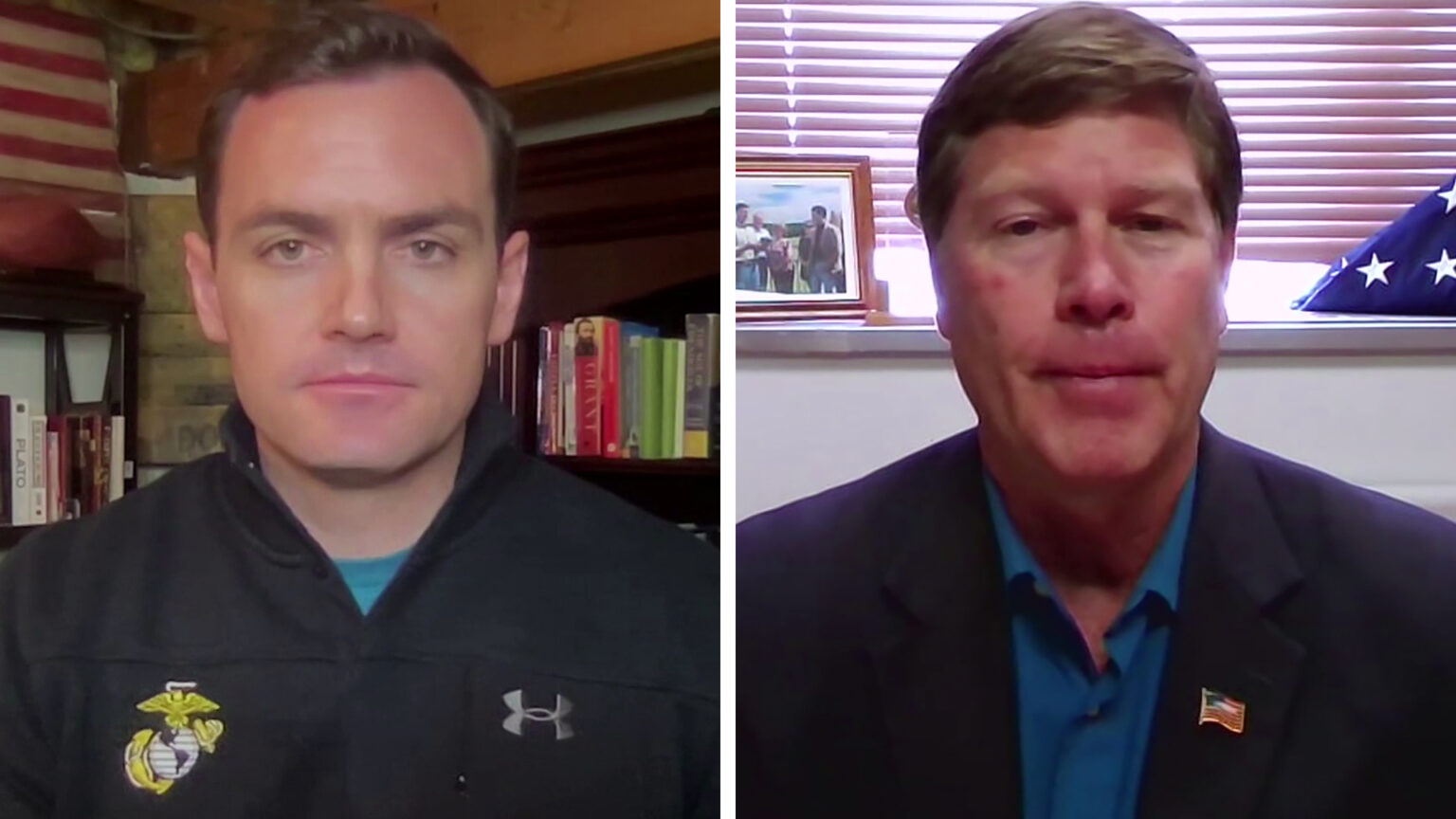
U.S. Rep. Mike Gallagher and U.S. Rep. Ron Kind (Credit: PBS Wisconsin)
Two members of Wisconsin’s congressional delegation, Republican Mike Gallagher and Democrat Ron Kind, discussed American military might and economic sanctions against Russia in its war with Ukraine. Here & Now senior political reporter Zac Schultz detailed potential next steps after the U.S. Supreme Court sent Wisconsin’s redistricting maps back to the state’s high court to resolve legal matters involving the Voting Rights Act.
U.S. Rep. Mike Gallagher
(R) Appleton
- Representing Wisconsin’s 8th Congressional District, Gallagher is a former Marine Corps intelligence officer and member of the House Armed Services Committee. He described Vladimir Putin’s war against Ukraine as flagging.
- Gallagher: “The Russian blitzkrieg has failed, which is a development we welcome. But now I fear we’re settling into a war of attrition that not only is going to be very costly in terms of slaughter and lives lost, but it’s still an uncertain outcome, though it seems unlikely that Putin could consolidate any sort of control over the entire country. He could effectively dismember the country, which would be a bad outcome for the Ukrainian people, as well as give him a platform from which to threaten NATO more in the future. So I think we are still in the early stages of this, and we need to continue to do whatever we can to provide lethal assistance in particular to the Ukrainians who are fighting very, very bravely.”
- President Joe Biden said if Russia uses chemical weapons against Ukraine, the U.S. would have “a response in kind.” What kind of chemical weapons could be used?
- Gallagher: “Well, it could be any number of things. You can imagine Putin striking targets on the ground in Ukraine that could have biological fallout. You could have dirty bombs, and obviously he could start to escalate all the way up to nuclear weapons. Then in Syria, we’ve seen him basically use the country as a laboratory for how to integrate chemical and biological warfare into conventional operations, and in partnership with the Assad regime has at various times used such weapons, which was the last time that a Democratic administration set a red line. So now that the Biden administration has said it, he better be prepared to back it up. Now, I don’t think we should allow the fear of escalation to dominate our actions. In fact, I think that’s part of why we got into this crisis in the first place, as we were so afraid of provoking Putin that that was used as an excuse to do nothing and to delay assistance to the Ukrainians. So we want to shift the dynamic and make sure that it’s Putin who fears our retaliation, and that’s the only way we’ll be able to restore some semblance of deterrence in Ukraine.”
U.S. Rep. Ron Kind
(D) La Crosse
- Representing Wisconsin’s 3rd Congressional District, Kind said Vladimir Putin has made perhaps the “biggest strategic mistake of the 21st century” – expecting a divided Ukraine, NATO and United states – and got the opposite.
- Kind: “It’s been a three-fold response, not only providing military and humanitarian aid to the Ukrainian people, and the free world is standing up and doing that, but the unprecedented economic sanctions that President Biden led and put into place. I was in London a few weeks ago negotiating the high-tech export ban on Russia — think computer software, telecommunications equipment, microchips and microprocessors. We know the world runs on microchips today. This is going to take a very heavy toll on the Russian economy, and especially the Russian military that needs that and spare parts. The big missing ingredient right now is the energy resources that Russia supplies western Europe, and we’re hard at work. In fact, President Biden just announced a major liquefied natural gas agreement with Europe. They’re dependent on 40% of their natural gas from Russia. I believe this new agreement moving forward is going to reduce that dependency, not just in the short term, but permanently. And again, that was a huge miscalculation by Putin in this war … The ruble is in a freefall. They’re quadrupling interest rates right now. The stock market’s been closed for four weeks. Inflation is exploding out of control, and they have turned themselves into an international pariah. The real question is what’s China’s response? They’ve been ambiguous about which way they’re leaning, and given their close economic ties to the U.S. and European Union, I don’t think China wants to side with an international war criminal — Putin — and Russia at this time.”
Zac Schultz
Senior political reporter, Here & Now
- The U.S. Supreme Court rejected the legislative set of Wisconsin redistricting maps put forth by Democratic Gov. Tony Evers in response to a state Supreme Court requirement seeking a “least change” approach from existing districts. Republicans argued Evers’ maps violated the Voting Rights Act by improperly using race in setting seven majority-Black Assembly districts in the Milwaukee area compared to the six districts in place since 2011. Evers wants to submit new evidence to the state Supreme Court in support of his maps or make changes to them.
- Schultz: “He’s looking at two different options for how to keep his whole map in place, either by making minor adjustments in the Milwaukee area and hoping that satisfies the Wisconsin Supreme Court and the U.S. Supreme Court. Or, he’d like to keep his original map and make a further justification to the U.S. Supreme Court of why his districts actually are legal under the Voting Rights Act. The crux of that argument there is that he says he didn’t get to make the full case in the first place, and the U.S. Supreme Court wanted evidence that it never received in making the decision to say that there was no justification for creating that seventh Black majority district in Milwaukee.”
Conservative Wisconsin Supreme Court Justice Brian Hagedorn was the swing vote, writing the 4-3 decision that approved Evers’ maps. - Schultz: “He’s been the swing vote on all of these really important decisions all along. There’s three liberals, there’s three conservatives, and Justice Hagedorn is clearly a conservative in mindset, but he has approached things differently and independently in a lot of these cases. He was the one that set the standard for the ‘least change’ model that the Court decided to adopt to picking the maps, and he’s the one who sided with liberals when they decided to pick the Evers map, saying that that fit in the first place. So he’s who everyone’s going to be appealing to when it comes to deciding how this gets figured out.”
- The U.S. Supreme Court let stand Wisconsin’s congressional redistricting maps submitted by Evers and approved by the state high court.
Watch new episodes of Here & Now at 7:30 p.m. on Fridays.
 Passport
Passport




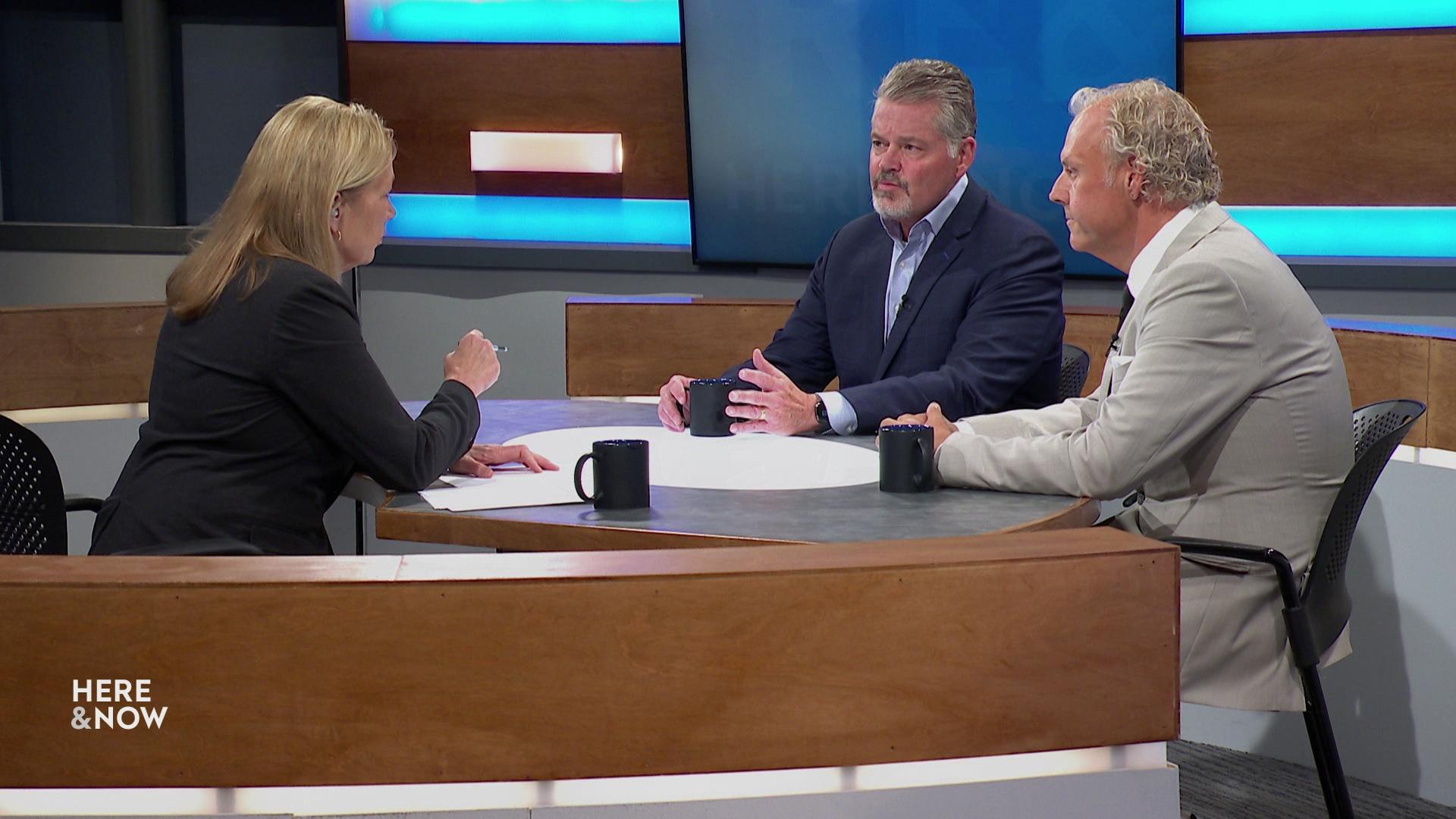

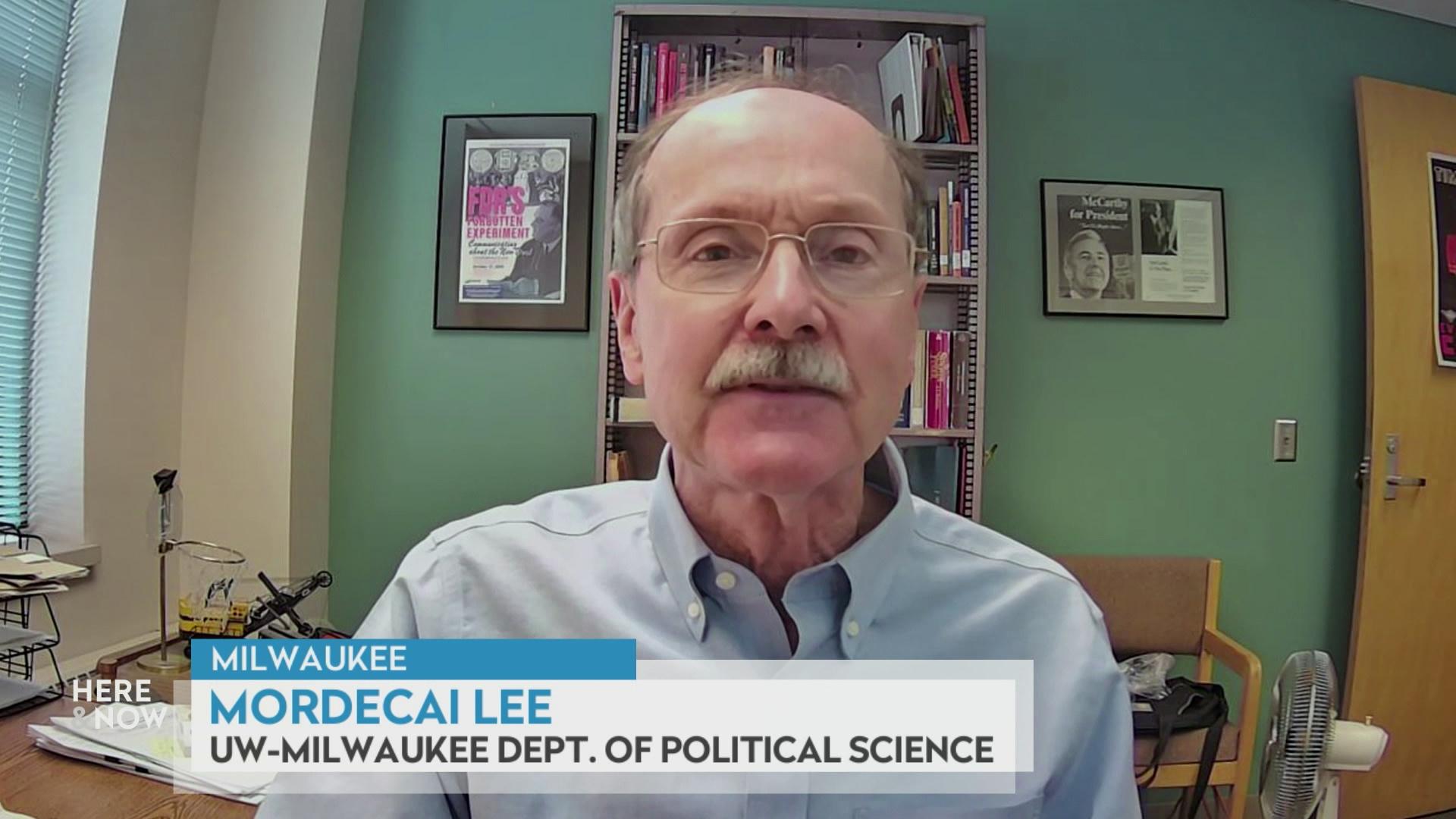
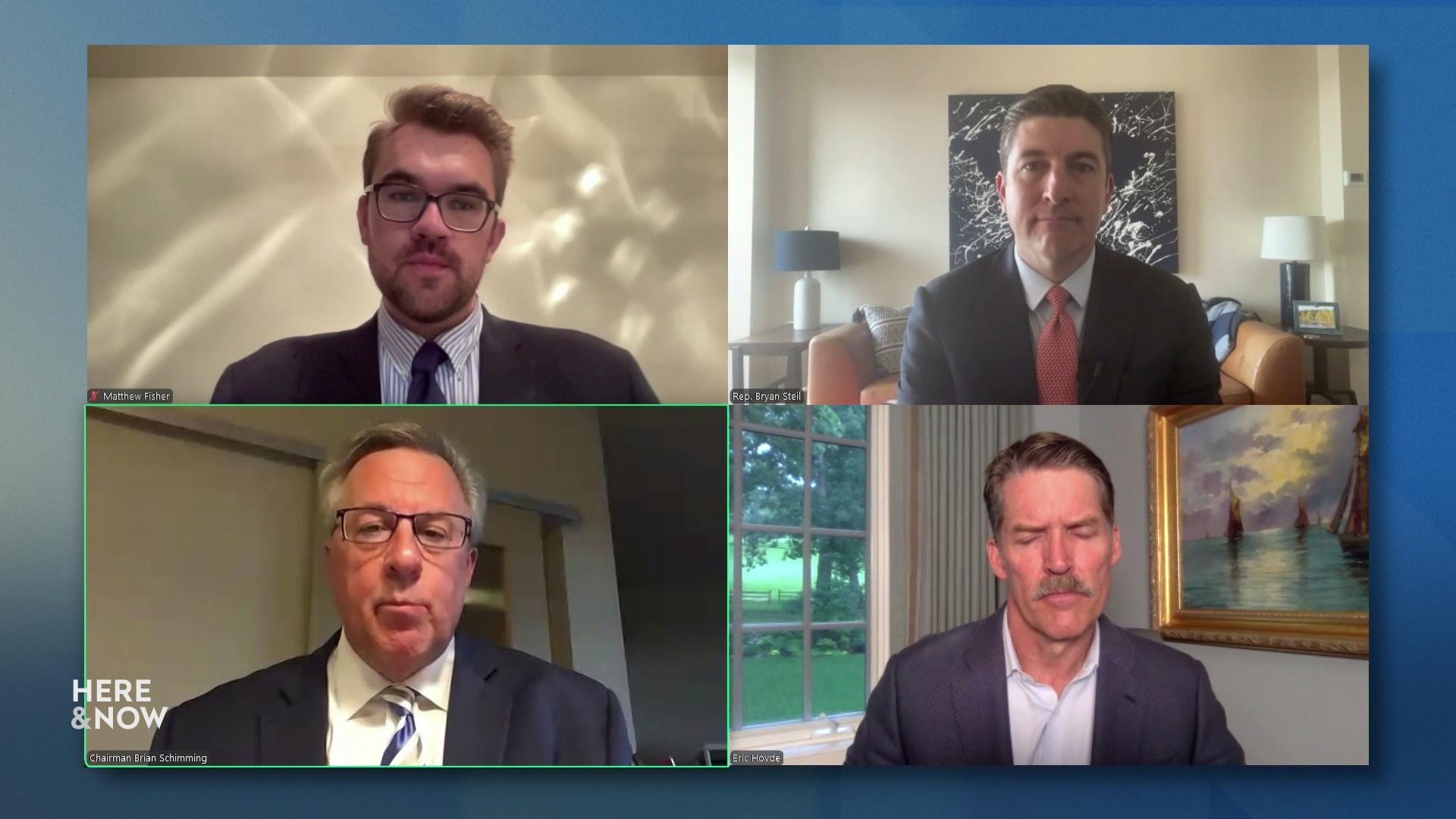
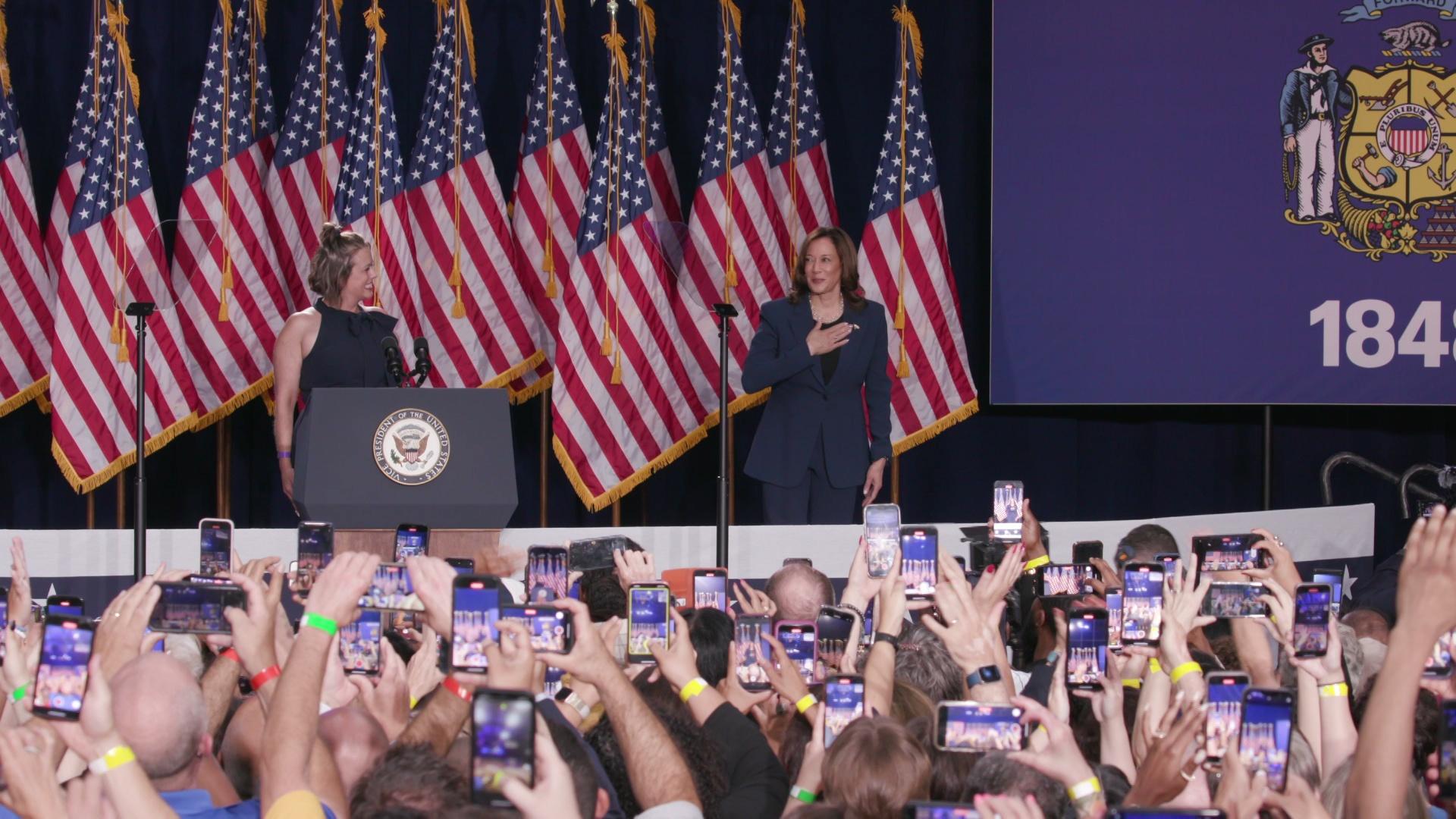


Follow Us